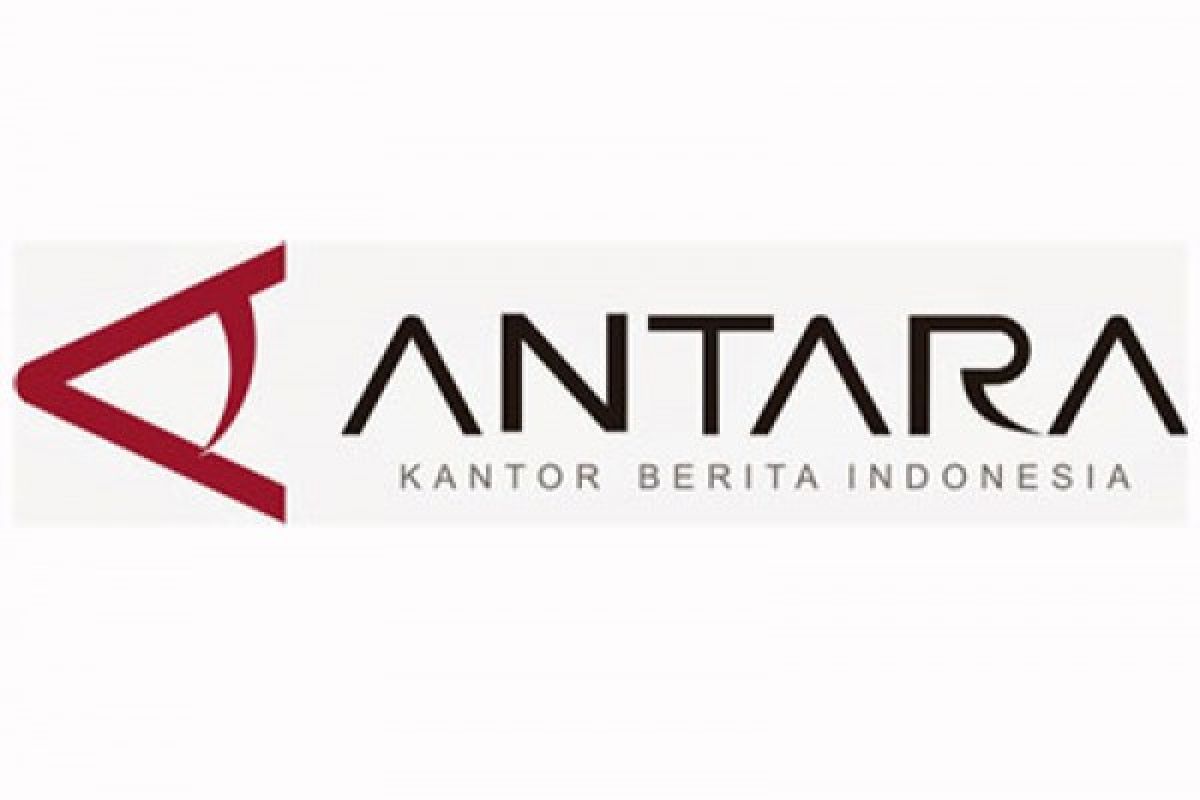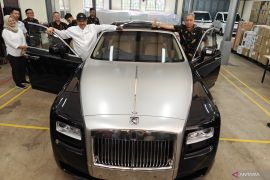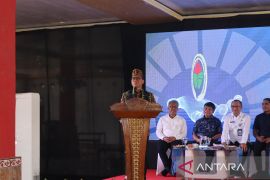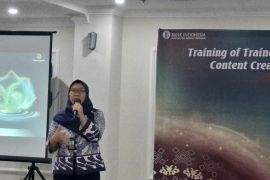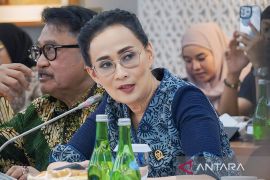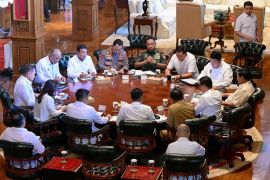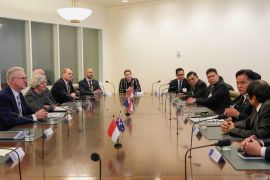Development efforts in Indonesia must implement the Green Development or Green Economy concepts, which are in essence friendliness to the environment. However, the government should have a clear concept to achieve this target.
According to legislator Irawan Pasaribu of the House of Representatives` (DPR`s) Commission VII on environment affairs, the government must have a clear work plan to realize the target of utilizing green energy or renewable energy by 23 percent by 2025.
"One of the efforts that should be made is to support the development of new and renewable energy in potential areas such as West Sumatra," he said during a working visit to Padang, provincial capital of West Sumatra, on Monday.
Currently, according to him, the percentage of energy utilization is only about 12.5 percent, still far from the target of 23 percent.
Virtually, the government has been successful in achieving and exceeding its renewable energy mix target in 2017, after it failed to reach the environment-friendly energy target in 2015 and 2016.
The Energy and Mineral Resources (ESDM) Ministry stated that the realization of the new and renewable energy (EBT) mix program exceeded the target set in the revised state budget in 2017.
Public Information and Cooperation Service Head of the ESDM Agung Pribadi noted in Jakarta last month (Jan 7) that the increase in the energy mix production took place not only with the power plants developed by state-owned power company PLN but also with plants built by independent power producers (IPP).
"The realization of the EBT energy mix, produced by power plants until November 2017, reached 12.52 percent, exceeding the target set in the Revised 2017 State Budget (APBNP) of 11.96 percent. The main portion of the increase came from the hydropower plants (PLTA) and geothermal plants (PLTP)," he added.
In 2016, the government set renewable energy mix target at 10.4 percent, but it only achieved 7.7 percent of the renewable energy portion.
The success to achieve the target is a good indication that the government could achieve its target to reach renewable energy mix of 23 percent by 2025.
In the meantime, Indonesia`s development efforts are facing three big challenges, namely food, energy sufficiency, and provision of efficient energy supplies; but to meet all these, development efforts must be carried out based on a green concept to balance economic growth with environmental conservation.
Therefore, the Green Economy concept is suitable for application in Indonesia`s development projects. The government must prioritize green economic development strategy, which is environment friendly, in order to prevent ecosystem degradation that demands big rehabilitation cost. It must implement triple-track-plus-one economic strategy, namely pro-growth, pro-job, pro-poor, and pro-environment.
Hence, Indonesia should continue to develop a green economic concept in an effort to improve the welfare of its people and overcome the threat of climate change. The green economy has become a kind of new economic ideology in the world in the 21st century.
Green economy is needed because the world today is facing a great challenge from climate change, the impact of which is already being felt with the emergence of a number of crises in the world, such as food, energy, and water crises.
Indonesia`s energy development vision in future lays emphasis on the use of new and renewable energy. In 2015, the national energy mix had comprised of 39 percent oil, 22 percent gas, 29 percent coal, and 10 percent new and renewable energy.
Indonesia is planning to achieve an energy mix of 25 percent oil, 22 percent gas, 30 percent coal, and 23 percent new and renewable energy in 2025.
In 2050, the energy mix will comprise 20 percent oil, 24 percent gas, 25 percent coal, and 31 percent new and renewable energy. The government admitted that it was not easy to achieve the target.
The targets seem to be very difficult to achieve, owing to the fact that until recently, the government has only achieved about 8 to 9 percent. Seeing the performance, it could probably only achieve 12 to 13 percent in a 2019.
However, Indonesia is resolved to reduce its use of conventional fossil fuels and continues to promote new and renewable sources of energy and increase share of renewables in its energy mix to 23 percent by 2025.
Legislator Irawan Pasaribu noted that the remaining seven years until 2025 is relatively short, and there should be a clear work plan. Therefore, Commission VII will continue to guard the government to be consistent in the development of green energy.
Moreover, renewable energy is much cleaner than the energy derived from fossils such as petroleum or coal. In the short term, it is relatively expensive, but in the long run, it can be cheaper because the government does not have to spend other budget to neutralize pollution caused by fossil energy. "This should be the government`s consideration," he revealed.
(T.A014/A/KR-BSR/S012)
Reporter: Andi Abdussalam
Editor: Heru Purwanto
Copyright © ANTARA 2018
